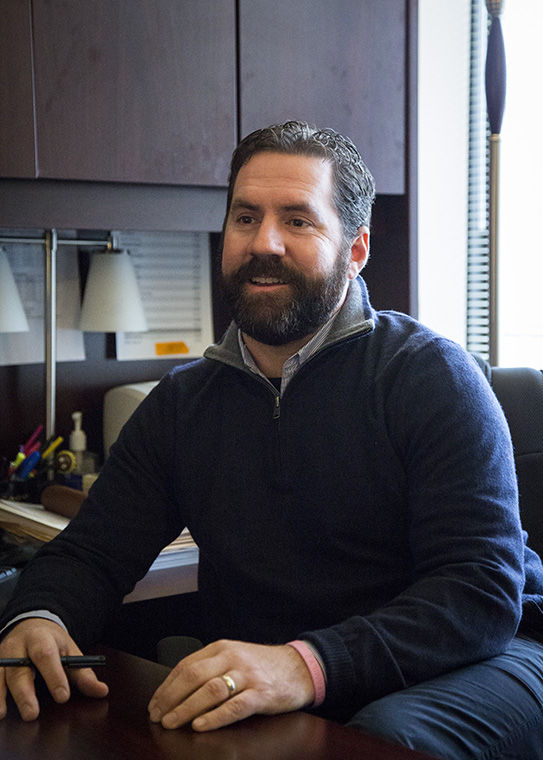Advising Center implements new model with new leadership
Brian Marth, executive director of the College Advising Center, works to centralize the College Advising Center and bring clarity to students.
December 7, 2015
Brian Marth, former director of the College Advising Center, has been promoted to executive director amid changes to the center’s structure, according to a Nov. 30 emailed announcement from the Office of the Provost.
“It’s very flattering,” Marth said. “I am excited for all the changes we are doing for the school. We are trying to make it a better place.”
Marth, who has been employed by Columbia since 2000, will now work more closely with campus administrators to implement a new advising model, along with a caseload management approach he said could increase student retention, boost graduation rates and strengthen relationships between the advising staff and academic departments.
“The challenge we are at now is, we are really excited to get where we are going,” Marth said. “It is going to be a slow change.”
The new advising model will allow college advisors to work more closely with students to clarify graduation requirements and inform academic departments as to which students are facing problems, Marth said. Faculty advisors will now focus more on professional mentorship and career outcomes for students.
This summer, the College Advising Center transitioned from reporting to the Office of Student Success to doing so to the Office of the Provost under the leadership of Keri Walters, assistant provost for Academic Services. The change is meant to further integrate the advising center into the academic departments, Marth said.
Walters said the change will benefit students by giving them an improved level of service and more clarity, adding that she could not think of a better person to lead the change than Marth.
Along with Marth’s promotion, four new advisors were hired Dec. 7 to fill vacancies in the Advising Center. The new advisors have not yet been assigned specific caseloads because the center is still shifting responsibilities around, Marth said.
Along with the new advisors, Alexis Thompson, a 2015 alumna, was hired as an administrative assistant and Rachel Horton, a previous college advisor, was promoted to be the center’s associate director.
Horton will primarily work with the college’s Satisfactory Academic Progress Policies and Procedures, which determine whether a student is in compliance with the school’s academic policies.
Will Casey, a college advisor, said he is excited about the new advising model because it will make the center more central to the academic picture. He said he is thrilled with Marth’s promotion, saying he is a “genius.”
The Every Advantage for a Successful Education program, a proactive system for notifying the correct members of the college when a student is exhibiting social, personal or academic problems, is also now housed within academic affairs and is under Marth’s leadership, along with the new Student Success Collaborative, a partnership with the Educational Advisory Board that enables advisors to implement strategic, proactive advising campaigns to target specific student populations in need of support.
Marth said the long-term goal is to have a centralized advising office, more clarity for students and support to navigate the pathways to graduation.
“It is better for everyone,” Marth said. “It is better for students when they leave; it is better for students who are interested in coming.”








